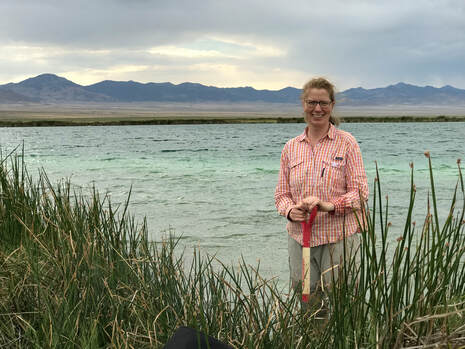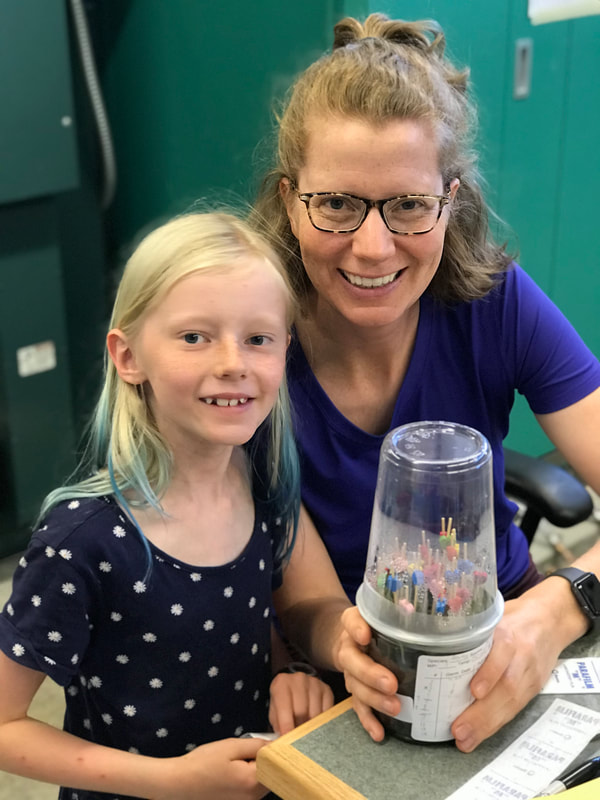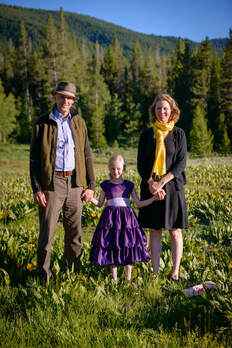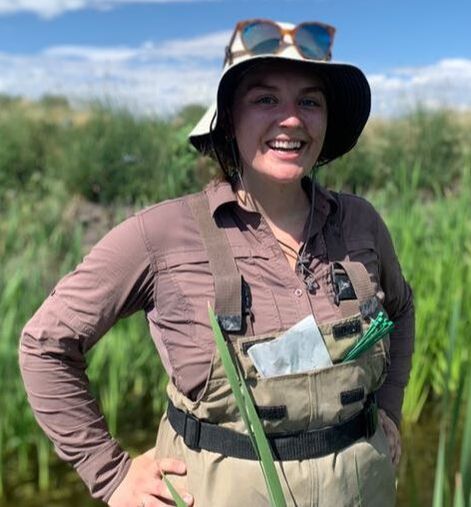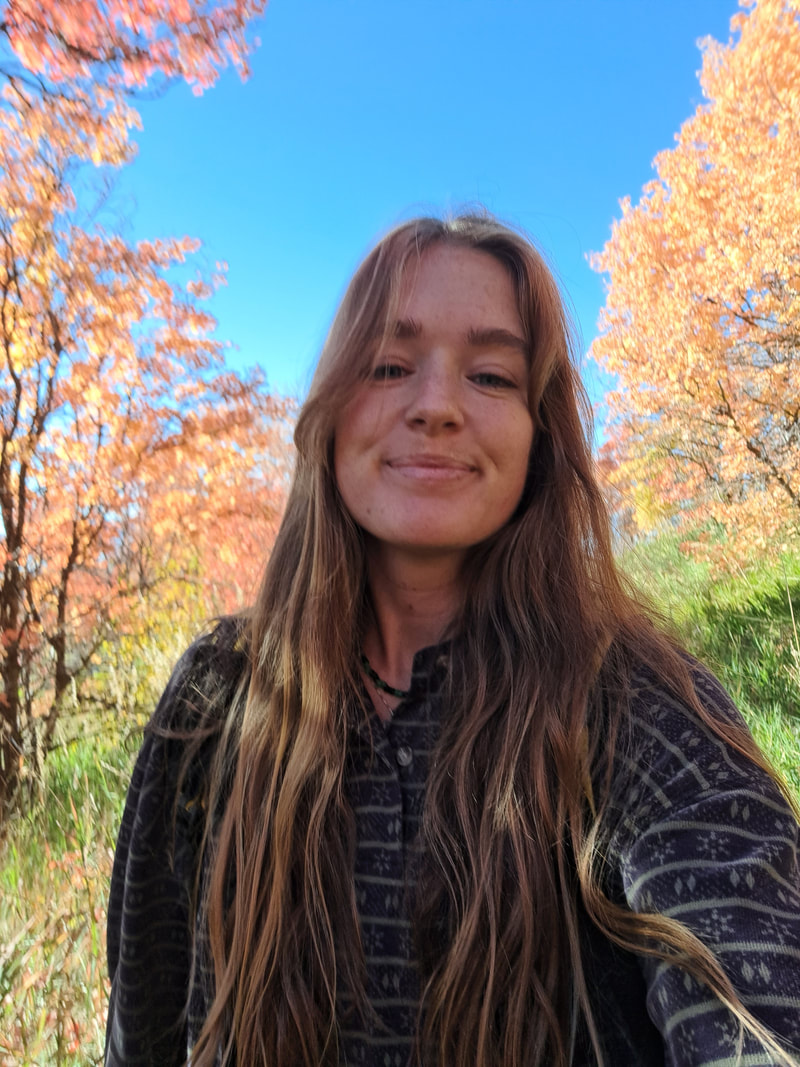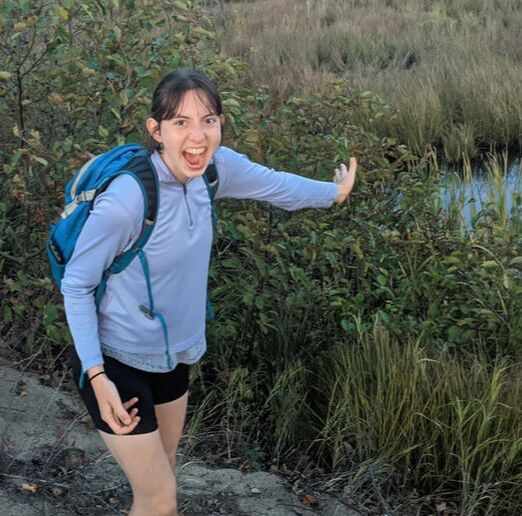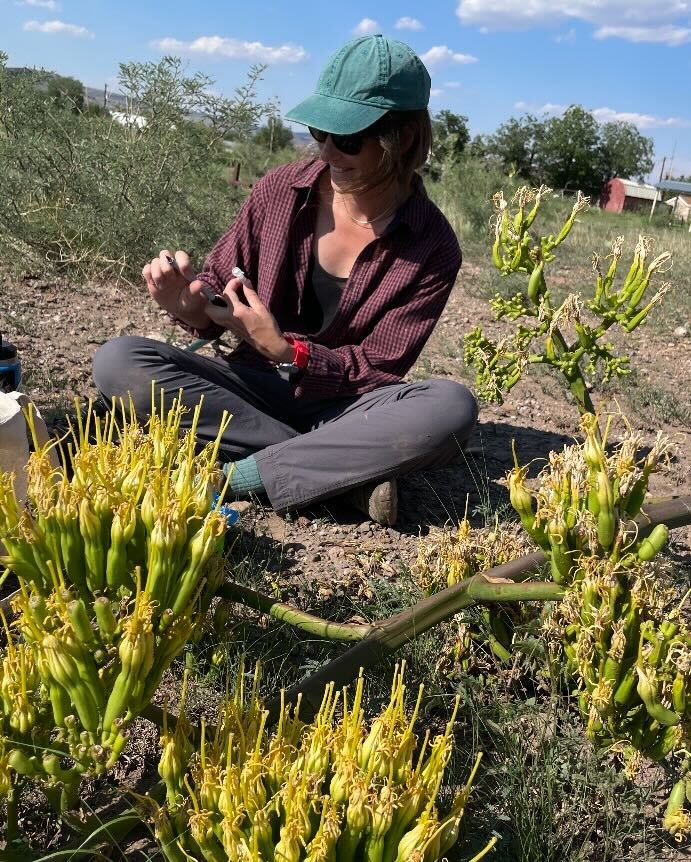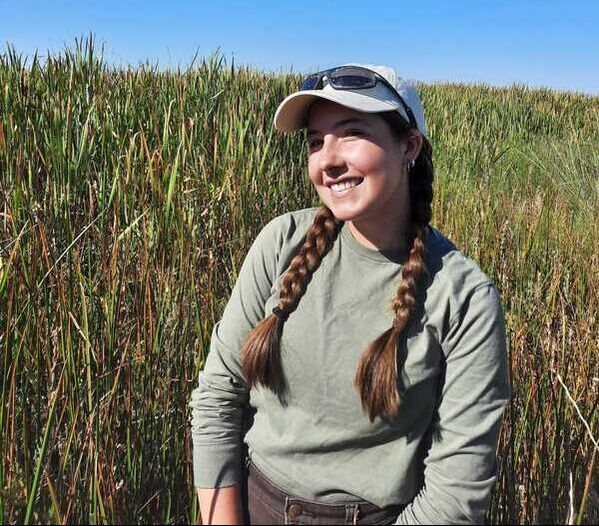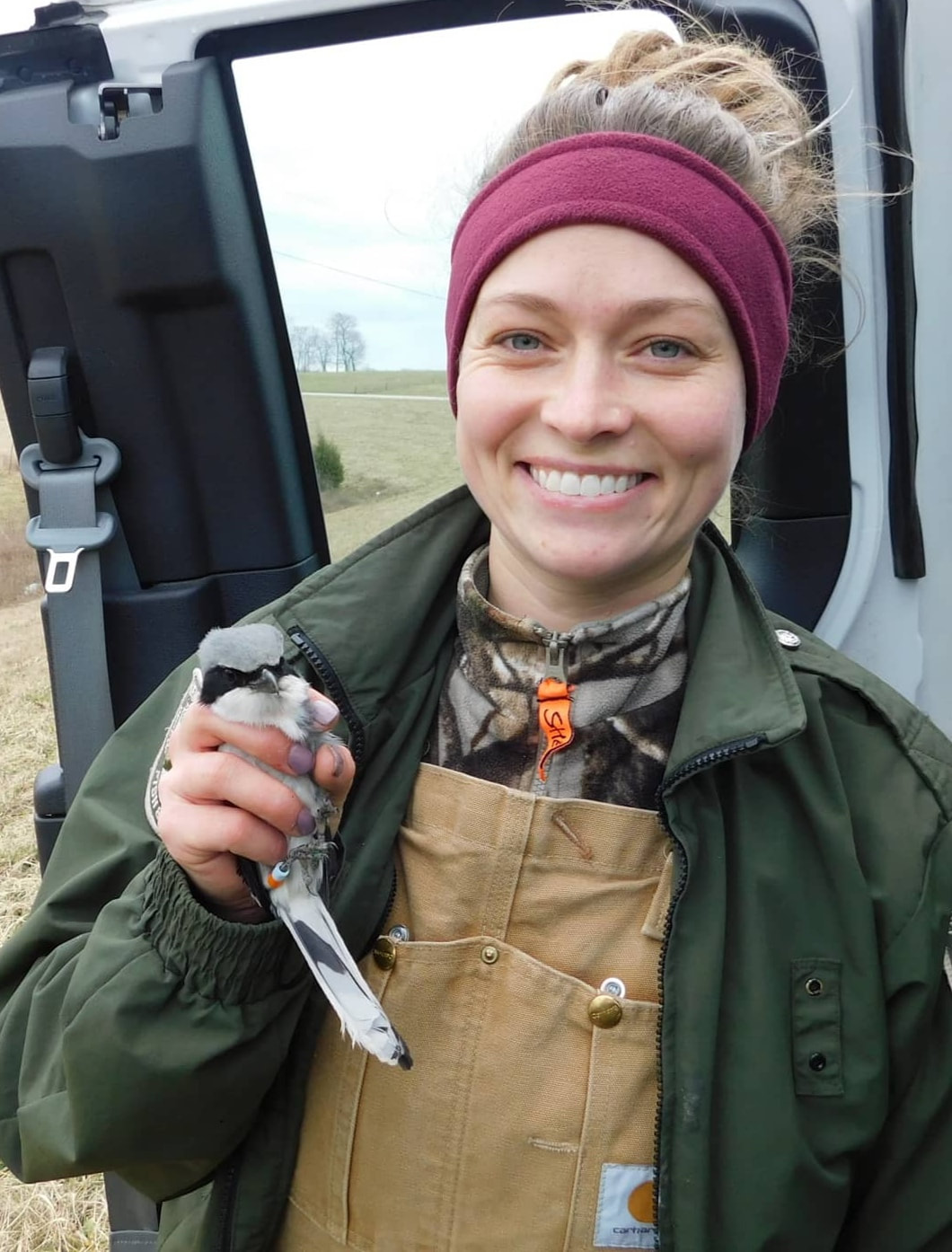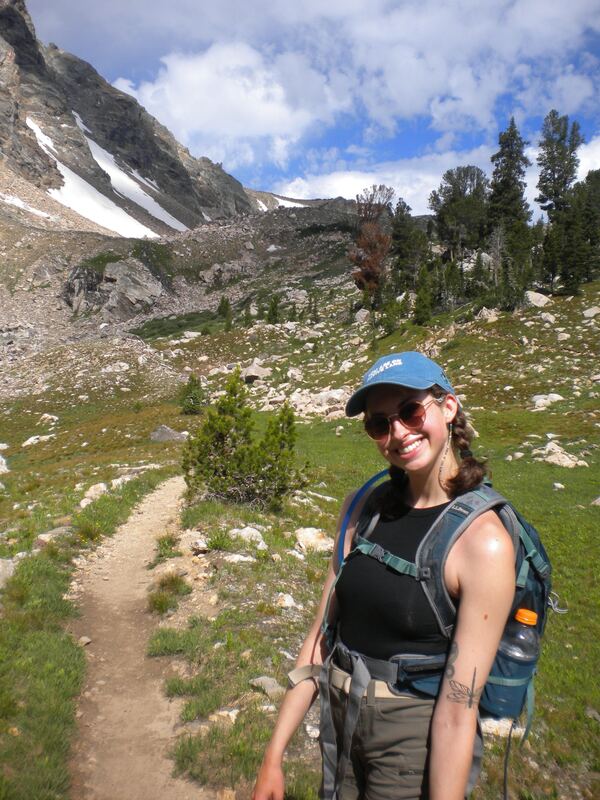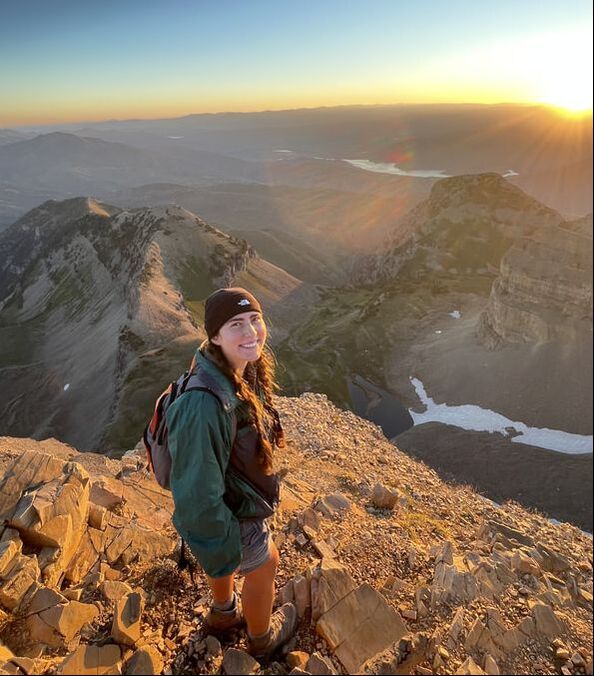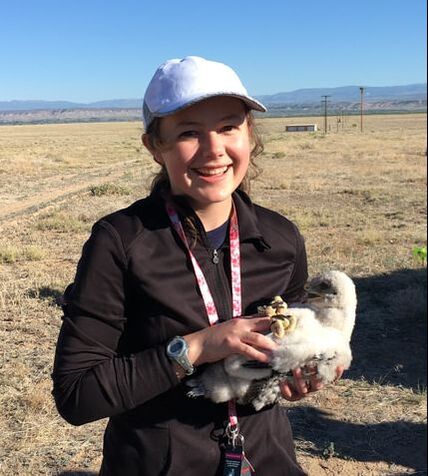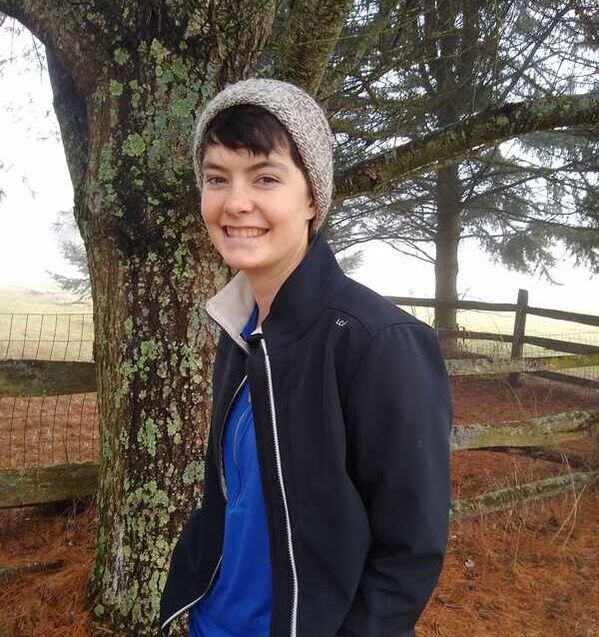Dr. Karin Kettenring, Professor
Karin is head of the Wetland Ecology and Restoration Lab in the Department of Watershed Sciences at Utah State University.
She has a B.A. in biology from Oberlin College. She received her Ph.D. in applied plant sciences from the University of Minnesota where she worked with Dr. Susan Galatowitsch. Her Ph.D. research focused on restoration of sedges in prairie pothole wetlands. She was also a Postdoctoral Fellow with Dr. Dennis Whigham at Smithsonian Environmental Research Center in Maryland where she studied the invasion of Phragmites australis in Chesapeake Bay tidal wetlands. She has been a faculty member at Utah State since 2008.
Her current research efforts focus on (1) the ecology, genetics, and management of wetland invaders, (2) seed ecology of native wetlands plants, with implications for wetland revegetation, and (3) restoration genetics for sustainable, functioning wetland restorations.
For more information see her Google Scholar page, ResearchGate page, or follow her on Twitter @KarinKettenring. Her email is karin.kettenring [at] gmail.com
She has a B.A. in biology from Oberlin College. She received her Ph.D. in applied plant sciences from the University of Minnesota where she worked with Dr. Susan Galatowitsch. Her Ph.D. research focused on restoration of sedges in prairie pothole wetlands. She was also a Postdoctoral Fellow with Dr. Dennis Whigham at Smithsonian Environmental Research Center in Maryland where she studied the invasion of Phragmites australis in Chesapeake Bay tidal wetlands. She has been a faculty member at Utah State since 2008.
Her current research efforts focus on (1) the ecology, genetics, and management of wetland invaders, (2) seed ecology of native wetlands plants, with implications for wetland revegetation, and (3) restoration genetics for sustainable, functioning wetland restorations.
For more information see her Google Scholar page, ResearchGate page, or follow her on Twitter @KarinKettenring. Her email is karin.kettenring [at] gmail.com
Meghan Slocombe, MS studentMeghan joined the lab in fall 2022. Her MS work focuses on aquatic plant restoration for the Provo River Delta Restoration Project. She's passionate about restoration work that focuses on community involvement and collaboration among stakeholders. During her free time, Meghan loves to cook, read, and take her pup Pepper on outdoor adventures!
|
Chloe Francis, Research TechnicianChloe is an undergraduate student in the Quinney College of Natural Resources pursuing a Conservation and Restoration Ecology degree. She joined the lab in late spring 2024 as a research technician.
|
Sam Kurkowski, Lab ManagerSam has been the Lab Manager since May of 2023, when she completed her MS in Ecology at Michigan Technological University studying vernal pools in Great Lakes National Parks. As lab manager, she helps the lab run smoothly and facilitates many different projects. Sam is passionate about wetland ecology and restoration and particularly enjoys the researcher-manager collaboration that WERL cultivates. In addition to her typical duties, she will also be starting a project surveying fens in the Uinta Mountains in summer of 2024. In her free time she enjoys trail running, canoeing, and sewing.
|
Montana Horchler, M.S. student |
Ashlyn Monroe, Research Technician |
Loren Taylor, M.S. student |
|
Montana recently moved from Flagstaff, AZ, to start her MS in the WERL in fall 2023.
|
Ashlyn joined our lab in late summer 2023 to assist on our field projects. Ashlyn is excited to be working in a research lab for the first time and is passionate about wetlands. In her free time she enjoys camping, hiking, and birding.
|
Loren, a native of Kentucky, has spent the past few years living and working in the Jackson, WY area. She joined the lab in fall 2023 as an MS student.
|
|
Mackenzie Bingham, Research TechnicianMackenzie is an undergraduate student in the Quinney College of Natural Resources. She joined the lab in late spring 2024 as a research technician.
|
|
Sandy Johnston, Research Scientist
Sandy has worked in our lab for a number of years including as an undergraduate researcher in spring 2023. In spring 2024, she completed her Masters of Ecological Restoration and transitioned to a Research Scientist position in our lab, focusing on aquatic plant restoration.
|
Graduates
- Maddie Houde defended her thesis in spring 2024. She is now a Protected Plants Specialist with the Nevada Division of Forestry.
- Elana Feldman defended her MS thesis is fall 2023. She now works for the Working Lands Conservation as a Project Manager in Utah.
- Jes Braun defended their MS in spring 2023. They are an Ecologist with Inter-Fluve in Hood River, Oregon.
- Kate Sinnott defended her MS in spring 2023. She is now a Seed Technologist with the Minnesota Crop Improvement Association.
- Emily Tarsa defended her PhD in fall 2022. She is now an Assistant Professor at Georgia Coastal University.
- Coryna Hebert defended her MS degree in spring 2022. Her thesis can be found here: The Effect of Species Choice, Seed Mix Composition, and Microtopography on Native Plant Restoration in Great Salt Lake Wetlands. She now works for Ducks Unlimited as a biologist out of SLC.
- Rae Robinson defended her MS degree in spring 2021. Her research focused on the effects of seed mix composition, sowing density, and seedling survival on plant community reassembly in Great Salt Lake wetlands.
- Emily Leonard defended her MS degree in fall 2019. Her research focused on arthropod assemblages in Phragmites-invaded, native-plant dominated, and restored Great Salt Lake wetlands.
- Brittany Duncan defended her MS degree in summer 2018. Her research focused on control of Phragmites with cattle and nutrient impacts. She is the Invasive Species Monitoring Specialist with Utah Department of Agriculture and Food.
- David England defended his MS degree in January 2018. His research focused on Seeding treatments to enhance seedling performance of the bulrushes Bolboschoenus maritimus, Schoenoplectus acutus, and S. americanus in wetland restorations. He is Assistant Wetland Manager at Farmington Bay Waterfowl Management Area.
- Christine Rohal graduated with her Ph.D. in spring 2018. Her research focused on Invasive Phragmites australis management in Great Salt Lake wetlands: context dependency and scale effects on vegetation and seed banks. She is a Postdoctoral Researcher at the University of Florida.
- Eric Hazelton graduated in summer 2017. His Ph.D. focused on control of Phragmites australis in Chesapeake Bay wetlands.
- Chad Cranney graduated in spring 2016. His MS thesis focused on Control of large stands of Phragmites australis in Great Salt Lake wetlands. He is now Salt Creek and Public Shooting Grounds Waterfowl Management Area Wetland Manager, Assistant Wildlife Manager, and Waterfowl Invasive Weed Project Leader.
- Jimmy Marty graduated in spring 2016. His MS thesis was on Revegetation of bulrushes Bolboschoenus maritimus, Schoenoplectus acutus, and S. americanus in Great Salt Lake wetlands: seed biology and influence of environmental factors on rhizomes. He now works for an environmental consulting firm in Minneapolis, MN.
- Lexine Long graduated in 2014. Her MS thesis was on the Distribution and drivers of a widespread, invasive wetland grass, Phragmites australis, in Great Salt Lake wetlands.
- Caroline Laine graduated in 2011. Her MS thesis focused on: An assessment of vegetation metrics and plot types to measure seasonal variation and grazing effects on riparian plant communities.
- Amanda Sweetman graduated in 2013. Her MS thesis focused on: The ecology and genetics of Schoenoplectus maritimus, an important emergent macrophyte, across diverse hydrologic conditions—implications for restoration.
- Diane Menuz graduated in 2011. Her MS thesis focused on: Using species distribution models to assess invasion theory and provide management recommendations for riparian areas in the eastern Columbia and western Missouri River basins. She now lives in Salt Lake City, UT, and is the State Wetland Coordinator for the Utah Geological Survey.
Undergraduate alumni
- Sandy Johnston.
- Sage Chatterton.
- Bailey Holdaway evaluated different different native seed mix densities and timings (priority effects) for invasion resistance to phragmites.
- Audree Provard focused on alkali bulrush functional trait variation.
- Rachel Chamberlain focused on threesquare bulrush functional trait variation.
- Anders Hart researched the effectiveness of seed coatings for enhancing seed germination and seedling performance of bulrush in Great Salt Lake wetland restorations.
- Gabriela Judd focused on variation in alkali bulrush seed and seedling traits.
- Casey Trout focused on the effects of cold, moist stratification on alkali bulrush dormancy loss.
- Bret Mossman evaluated the germination potential of bulrush seeds extracted from waterfowl gizzards. He graduated in spring 2017 and is now a graduate student at University of Hawaii.
- Konnon Smith conducted an undergraduate research project on the carbohydrate dynamics in rhizomes of Phragmites australis in Great Salt Lake wetlands.
- Delena Williams evaluated techniqes for germinating bulrushes for revegetation in Great Salt Lake wetlands. She graduated in spring 2017.
- Evan Pool developed allometric techniques for monitoring invasive Phragmites australis in Great Salt Lake wetlands.

